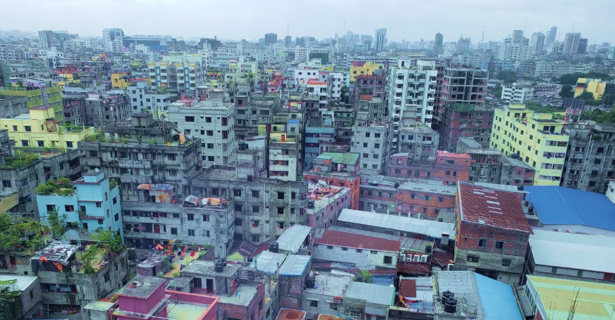When I think about my beloved childhood home of Dhaka, Bangladesh, I remember the busy streets, the smell of incense in the air, and my grandmother cooking while debating the ideals of feminism. Believe me, my grandmother and I have had some very enlightening conversations about navigating life as a woman. Not so surprisingly, we have a lot in common: she started her career as a single, independent doctor and I as a single, independent, policy analyst. Both of us are very proud of each other’s accomplishments.
My first job out of college was working as a policy analyst for the Commonwealth Secretariat that had commissioned the Bangladesh National Youth Policy project through the support of the Bangladesh Ministry of Youth and Sports. Therein began my fascination with policy work and the gravity of the impact that it can create across people, places, and time. Naturally, The Fletcher School of Law and Diplomacy, which is a fantastic policy school, was a great fit for me. This summer, as I work on several policy matter-related skills, I cannot help but remind myself of where I started.
I am very excited to work on policy research for the International Labour Organization (ILO) this summer, primarily because I get to research the Digital Bangladesh initiative, which was crafted by the Government of Bangladesh to create a more technologically capable workforce for the future. The opportunities that Information Communications and Technology (ICT) training and skills development can create for Bangladeshi people, particularly for marginalized communities of women, differently abled people, as well as ethnic and religious minorities are especially pertinent to my research. In particular, I analyze the dynamics of education access and the inequities surrounding them; job placement and employer preferences; how ICT skills training can be delivered online to a rapidly growing workforce, especially in pandemic (and post-pandemic) settings --- all with respect to the different challenges that may exist. This is to ensure that the ILO puts forward policies that are based on sound evidence and research.
In spite of some geographic challenges, I am very pleased to note that Bangladesh is currently the second-highest contributor of online digital labour in the world. These digital workers are skilled in the areas of graphic design, digital marketing, software engineering, app development, and more.
Creating policies that break down barriers to access digital labour platforms, incentivize local Bangladeshi employers to hire more women in ICT, and generate interest among marginalized populations to create their own tech businesses, will serve to expand the horizons of the Digital Bangladesh platform and then some.

